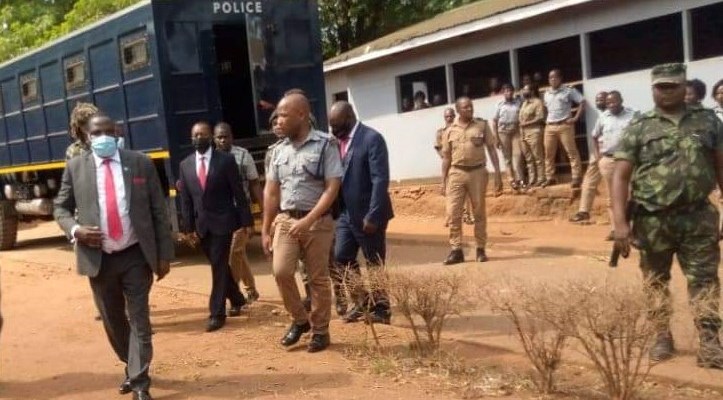The Chief Resident Magistrate Court sitting at Lilongwe District Registry was today taking a pivotal step in the cases involving former high-ranking officials from the Reserve Bank of Malawi, former Governor Dalitso Kabambe and former Deputy Governor Henry Mathanga.
The Director of Public Prosecutions (DPP) was today producing a certificate of for summary procedure trial in accordance with section 289 of the Criminal procedure and Evidence Code, is seeking to commit charges against both Kabambe, Mathanga and others to the High Court for trial.
The issuance of the certificate of summary procedure by the DPP is, according to a legal commentator, Lord Denning QB who spoke to us, a tactical step aimed at bypassing the preliminary inquiry phase that the subordinate court was mandated to conduct.
“The subordinate court is a court of limited jurisdiction in which there are some criminal cases which the it is not allowed to handle. Those cases are handled by the High Court which has unlimited jurisdiction. However, when a suspect is arrested, they are first brought before the subordinate court and if the offences involved are triable by the High Court, the case is committed to the High Court”, explained LordDenning adding that:
“For the subordinate court to determine whether there is indeed a case to answer and that the case involves an offence that can be tried by the subordinate court or High Court, the subordinate court conducts a preliminary inquiry, a process which involves taking sworn statements of witnesses and the accused being given a chance to cross examine all witnesses, this is a process that consumes time and often contributes to delays of cases”, he said.
In explain on what was happening in today’s hearing at the First Grade Magistrate Court in Lilongwe, Lord Denning explained that: “section 289 of the Criminal Procedure and Evidence Code give the Director of Public Prosecutions power issue a certificate of summary procedure trial. When this certificate, which indicates that the case is a proper one for trial by the High Court as a summary procedure case, is produced to the subordinate court, the subordinate court proceeds to commit the case to the High Court without conducting a preliminary trial”.
The charges include Conspiracy to Use Public Office for Advantage and money laundering, serious offenses that could involve substantial penalties under Malawian law. The DPP alleges that Kabambe and Mathanga conspired during their tenures at the Reserve Bank to facilitate an arbitrary payment of K14.79 billion to FDH Bank, an act which reportedly constitutes an abuse of their positions. They are also charged with money laundering for the misappropriation of government funds.
In a broader case, the State is also moving against a group that includes Kabambe, Mathanga, Leston Ted Mulli, Leonard Kandoje, Joseph Khupe, and entities like Web Commercials Limited and Mulli Brothers Limited. Together, they face allegations of conspiring to misuse public office to benefit private businesses, resulting in the opening of letters of credit valued at K36.6 billion.
Although the suspects initially appeared in magistrate courts following their arrests, today’s presentation of certificate of summary proceedings indicates the need for these complex and grave offenses to be dealt with at a higher judicial level – High Court.
The decision to forgo preliminary inquiries is noteworthy as it allows for a more expedient legal process, potentially decreasing the opportunity for delays typically characteristic of such hearings. The DPP’s summoning of a summary procedure, which lets the subordinate court commit cases directly to the High Court, seeks to curb any attempts by the accused to stretch out the trial process.













